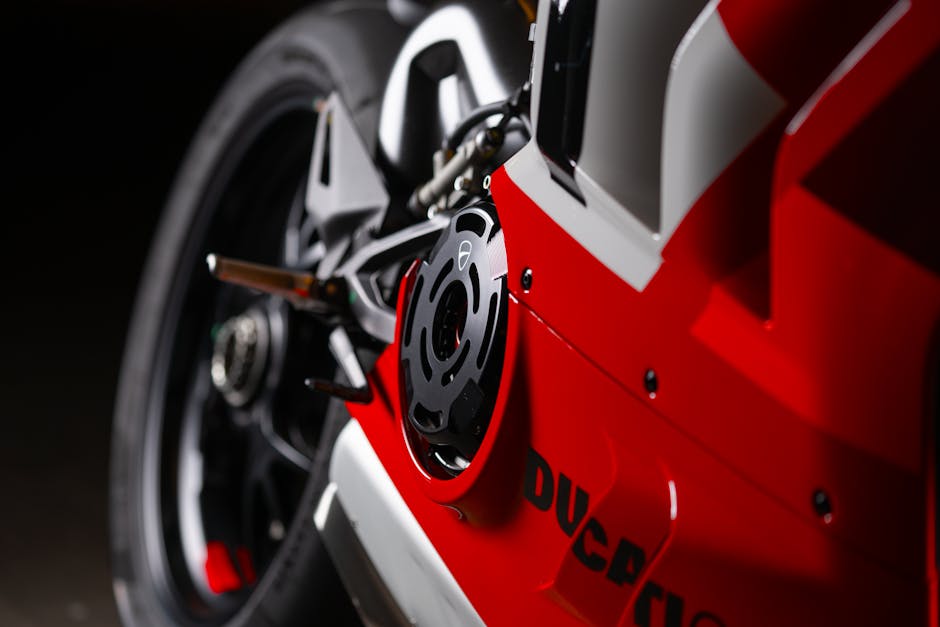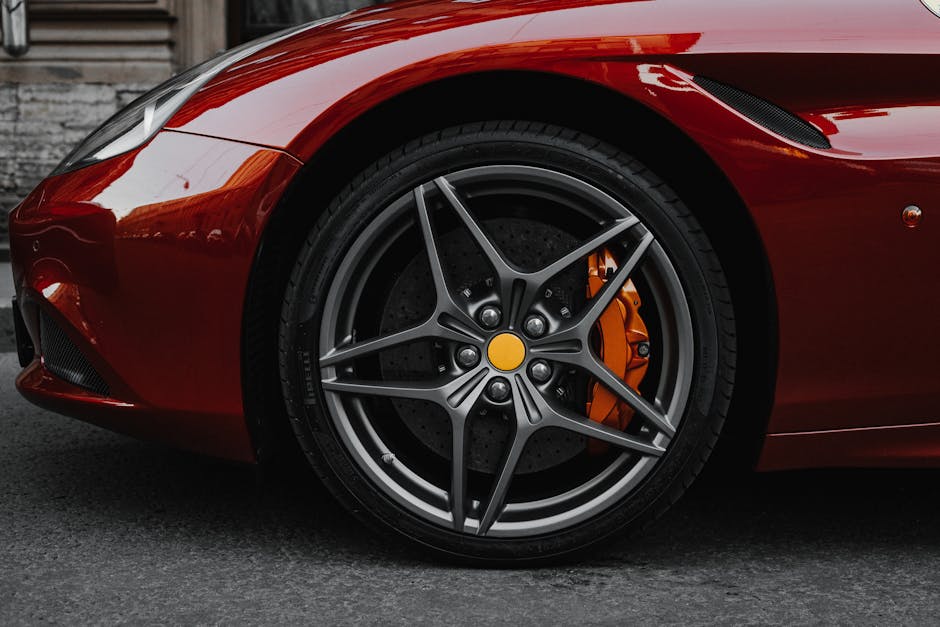The 2026 Ram Ramcharger Gets A 92 kWh Battery, 20.5 MPG, 690 Miles Of Range - Related to range, ram, 2025, battery,, review
2025 Skoda Fabia Select review

Despite extended highway runs during my time with the car, the damage is mostly done around town where the Fabia really ought to be right at home. The little engine needs to be given a shove to keep up with traffic, and it’s happy to oblige, but this sends fuel use up.
Last weekend, around 80 Ford Ranger Raptor owners had the chance to put ......
Alex Misoyannis has been writing about cars since 2017, when he started his own website, Redline. He contributed for Drive in 2018, before joining Car......
10% discount when you renew your car insurance.
Compare prices between different insurer providers and use the promo code 'PAULTAN10' when you make yo......
The 2026 Ram Ramcharger Gets A 92 kWh Battery, 20.5 MPG, 690 Miles Of Range

The Ram Ramcharger will be able to tow up to 14,000 lbs.
Stellantis says it can go up to 145 miles on full EV power, and up to 690 miles combined from its 27 gallon fuel tank.
The Ramcharger is expected to be on sale in the second half of 2025.
The 2026 Ram Ramcharger extended-range electric vehicle (EREV) is inching closer to production. Today, Ram released a few new technical details and specifications for its pickup, due on dealer lots by the second half of this year as a 2026 model-year truck.
, the Ramcharger will come with a 92 kWh battery which, when combined with the truck’s [website] Pentastar V6 engine, will have a combined range of 690 miles. We knew the range estimate before, but now we have a improved idea of how it actually gets there.
Interestingly, Ram also let us know that its battery pack only uses [website] kWh of its full 92 kWh battery pack. More on that in a moment.
Ram says the truck can drive up to 145 miles on pure electricity. When the truck is out of electric power, the Ramcharger can travel the rest of the way on gas, using its [website] V6 as a generator to feed electricity to its front and rear motor units. When out of electrical energy, Ram says that its targeted fuel economy is [website] MPG.
Although the EPA has yet to certify anything, this would track against what we now know. The Ram Ramcharger has a 27-gallon tank. So, 545 miles of gas driving, divided by the truck’s tank would bring us to [website] MPG, just shy of the hand calculations done here.
On paper, I suppose this doesn't sound mind-blowing. However, Ram Ramcharger’s off-energy fuel economy virtually matches its ICE [website] 4WD sibling, which gets a combined 23 mpg rating. Also, the RAM’s 14,000 lbs (6,350 kg) claimed towing capacity nearly doubles the roughly 7,500 (3,401 kg) towing capacity of its standard cousin.
So, 145 miles of range from the usable [website] kWh would equal about [website] miles per kWh, not counting charging losses. This is a little behind even the standard range F-150 Lightning, which gets 230 miles from its 98 kWh (usable) pack, averaging to about [website] miles per kWh. Stellantis says the lower usable battery capacity is to ensure a consistent driving experience, even while towing.
Some electrification is enhanced than none, but these numbers do sound a little lackluster to some die-hard EV buyers. Yet Stellantis officials mentioned the Ram Ramcharger might not be the truck directly marketed to the Tesla crowd or the eco-conscious. While some full BEVs may have stronger EV range or efficiency, the Ramcharger’s ability to tow is its ace up its sleeve.
While BEVs would have to stop at charging stations that may not be able to accommodate long trailers, the Ramcharger can be fueled like a gas truck and cruise all day at freeway speeds with no worries. “It’s a Goldilocks truck,” mentioned Ram CEO Tim Kuniskis, meaning that it could be sized, priced, and marketed just right to buyers who want an EV truck but the utility of an ICE one.
Ram hasn't showcased pricing for the Ramcharger. But as our sister site Motor1 reported, it will be comparable to combustion-powered Ram 1500s. Will those buyers opt for battery power if the price is about the same? It's going to be very interesting to find out.
Zevtron, ParkMobile, and Athena Partners Strategy Group are together supporting charging site owners and EV drivers affected by Shell ......
Mercedes is rethinking its electric car strategy amid declining sales. We've learned that future models will look more like gas cars by dropping the s......
Posted in Bike Parts and Accessories, Bikes / By Mohan K Ramanujam / February 25 2025 5:59 pm.
Celebrating the anime series Demon Slayer: Kimetsu no Y......
Police Are Fixing Ford's Taillight Theft Problem

Thieves are stealing Ford F-Series taillights at an alarming rate, especially in Texas. Earlier this month, police arrested three people in connection with a string of thefts targeting 34 victims that totaled $92,000 in stolen property. Police in one Texas town have found a solution, and it's offering free installs for owners.
The University Park Police Department will replace the OEM taillight screws with different screws that don’t fit the tools the thieves are using —and they have been doing so since 2021. The People Newspapers reported yesterday that the department has already replaced screws on more than 120 Ford trucks, none of which have had their taillights reported as stolen.
Jase Schellinger, a University Park Police Department detective, told the publication that the rudimentary fix works. ’s crime reports, thieves stole a half-dozen taillights over a week in mid-January, the first in the city since 2022.
It makes sense that such a simple fix like this could work. These are crimes of opportunity, with thieves likely targeting easily accessible pickups. Even a small deterrent, like swapping screws for ones with different heads, could be enough to scare a criminal away who doesn’t want to rummage around a toolbox for the correct bit.
That might not prevent someone from trying to steal the taillights, but it would be far easier as an owner to replace stripped-out screws than to pay $4,500 for new lights, which contain expensive sensors the thieves are after. Some victims have had to pay over $6,000 for replacement taillights, like one F-350 owner last month.
10% discount when you renew your car insurance.
Compare prices between different insurer providers and use the promo code 'PAULTAN10' when you make yo......
Despite extended highway runs during my time with the car, the damage is mostly done around town where the Fabia really ought to be right at home. The......
The Ram Ramcharger has a [website] kWh battery, but only [website] kWh are usable.
Ram says this is to provide a consistent driving experience between EV drivi......
Market Impact Analysis
Market Growth Trend
| 2018 | 2019 | 2020 | 2021 | 2022 | 2023 | 2024 |
|---|---|---|---|---|---|---|
| 8.3% | 10.0% | 10.5% | 11.6% | 12.3% | 12.7% | 12.8% |
Quarterly Growth Rate
| Q1 2024 | Q2 2024 | Q3 2024 | Q4 2024 |
|---|---|---|---|
| 10.9% | 11.7% | 12.4% | 12.8% |
Market Segments and Growth Drivers
| Segment | Market Share | Growth Rate |
|---|---|---|
| Connected Cars | 35% | 14.2% |
| Autonomous Driving | 22% | 18.5% |
| EV Technology | 28% | 21.9% |
| Telematics | 10% | 9.7% |
| Other Automotive Tech | 5% | 6.3% |
Technology Maturity Curve
Different technologies within the ecosystem are at varying stages of maturity:
Competitive Landscape Analysis
| Company | Market Share |
|---|---|
| Tesla | 16.9% |
| Waymo | 12.3% |
| NVIDIA DRIVE | 10.7% |
| Bosch | 9.5% |
| Continental | 7.8% |
Future Outlook and Predictions
The 2025 Skoda Fabia landscape is evolving rapidly, driven by technological advancements, changing threat vectors, and shifting business requirements. Based on current trends and expert analyses, we can anticipate several significant developments across different time horizons:
Year-by-Year Technology Evolution
Based on current trajectory and expert analyses, we can project the following development timeline:
Technology Maturity Curve
Different technologies within the ecosystem are at varying stages of maturity, influencing adoption timelines and investment priorities:
Innovation Trigger
- Generative AI for specialized domains
- Blockchain for supply chain verification
Peak of Inflated Expectations
- Digital twins for business processes
- Quantum-resistant cryptography
Trough of Disillusionment
- Consumer AR/VR applications
- General-purpose blockchain
Slope of Enlightenment
- AI-driven analytics
- Edge computing
Plateau of Productivity
- Cloud infrastructure
- Mobile applications
Technology Evolution Timeline
- Technology adoption accelerating across industries
- digital transformation initiatives becoming mainstream
- Significant transformation of business processes through advanced technologies
- new digital business models emerging
- Fundamental shifts in how technology integrates with business and society
- emergence of new technology paradigms
Expert Perspectives
Leading experts in the automotive tech sector provide diverse perspectives on how the landscape will evolve over the coming years:
"Technology transformation will continue to accelerate, creating both challenges and opportunities."
— Industry Expert
"Organizations must balance innovation with practical implementation to achieve meaningful results."
— Technology Analyst
"The most successful adopters will focus on business outcomes rather than technology for its own sake."
— Research Director
Areas of Expert Consensus
- Acceleration of Innovation: The pace of technological evolution will continue to increase
- Practical Integration: Focus will shift from proof-of-concept to operational deployment
- Human-Technology Partnership: Most effective implementations will optimize human-machine collaboration
- Regulatory Influence: Regulatory frameworks will increasingly shape technology development
Short-Term Outlook (1-2 Years)
In the immediate future, organizations will focus on implementing and optimizing currently available technologies to address pressing automotive tech challenges:
- Technology adoption accelerating across industries
- digital transformation initiatives becoming mainstream
These developments will be characterized by incremental improvements to existing frameworks rather than revolutionary changes, with emphasis on practical deployment and measurable outcomes.
Mid-Term Outlook (3-5 Years)
As technologies mature and organizations adapt, more substantial transformations will emerge in how security is approached and implemented:
- Significant transformation of business processes through advanced technologies
- new digital business models emerging
This period will see significant changes in security architecture and operational models, with increasing automation and integration between previously siloed security functions. Organizations will shift from reactive to proactive security postures.
Long-Term Outlook (5+ Years)
Looking further ahead, more fundamental shifts will reshape how cybersecurity is conceptualized and implemented across digital ecosystems:
- Fundamental shifts in how technology integrates with business and society
- emergence of new technology paradigms
These long-term developments will likely require significant technical breakthroughs, new regulatory frameworks, and evolution in how organizations approach security as a fundamental business function rather than a technical discipline.
Key Risk Factors and Uncertainties
Several critical factors could significantly impact the trajectory of automotive tech evolution:
Organizations should monitor these factors closely and develop contingency strategies to mitigate potential negative impacts on technology implementation timelines.
Alternative Future Scenarios
The evolution of technology can follow different paths depending on various factors including regulatory developments, investment trends, technological breakthroughs, and market adoption. We analyze three potential scenarios:
Optimistic Scenario
Rapid adoption of advanced technologies with significant business impact
Key Drivers: Supportive regulatory environment, significant research breakthroughs, strong market incentives, and rapid user adoption.
Probability: 25-30%
Base Case Scenario
Measured implementation with incremental improvements
Key Drivers: Balanced regulatory approach, steady technological progress, and selective implementation based on clear ROI.
Probability: 50-60%
Conservative Scenario
Technical and organizational barriers limiting effective adoption
Key Drivers: Restrictive regulations, technical limitations, implementation challenges, and risk-averse organizational cultures.
Probability: 15-20%
Scenario Comparison Matrix
| Factor | Optimistic | Base Case | Conservative |
|---|---|---|---|
| Implementation Timeline | Accelerated | Steady | Delayed |
| Market Adoption | Widespread | Selective | Limited |
| Technology Evolution | Rapid | Progressive | Incremental |
| Regulatory Environment | Supportive | Balanced | Restrictive |
| Business Impact | Transformative | Significant | Modest |
Transformational Impact
Technology becoming increasingly embedded in all aspects of business operations. This evolution will necessitate significant changes in organizational structures, talent development, and strategic planning processes.
The convergence of multiple technological trends—including artificial intelligence, quantum computing, and ubiquitous connectivity—will create both unprecedented security challenges and innovative defensive capabilities.
Implementation Challenges
Technical complexity and organizational readiness remain key challenges. Organizations will need to develop comprehensive change management strategies to successfully navigate these transitions.
Regulatory uncertainty, particularly around emerging technologies like AI in security applications, will require flexible security architectures that can adapt to evolving compliance requirements.
Key Innovations to Watch
Artificial intelligence, distributed systems, and automation technologies leading innovation. Organizations should monitor these developments closely to maintain competitive advantages and effective security postures.
Strategic investments in research partnerships, technology pilots, and talent development will position forward-thinking organizations to leverage these innovations early in their development cycle.
Technical Glossary
Key technical terms and definitions to help understand the technologies discussed in this article.
Understanding the following technical concepts is essential for grasping the full implications of the security threats and defensive measures discussed in this article. These definitions provide context for both technical and non-technical readers.


